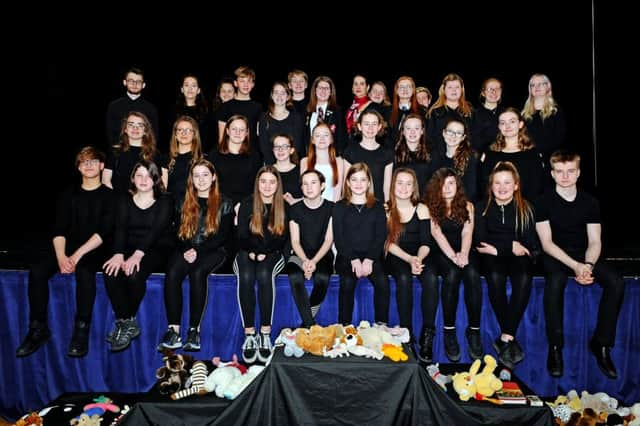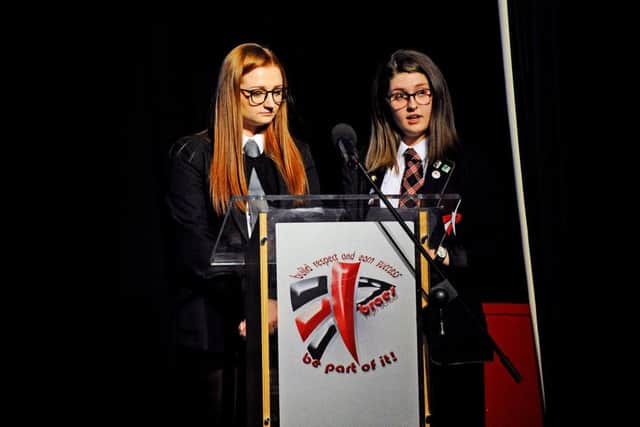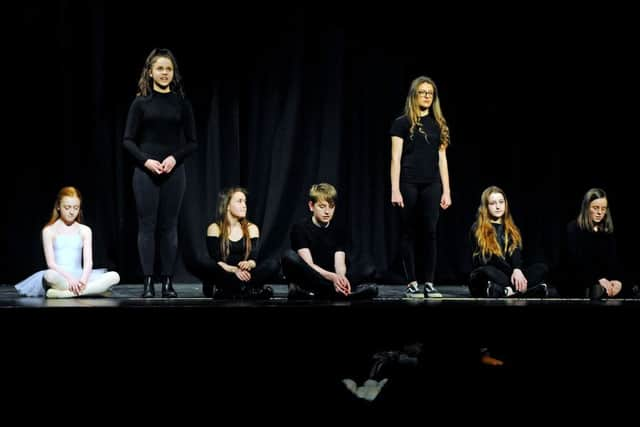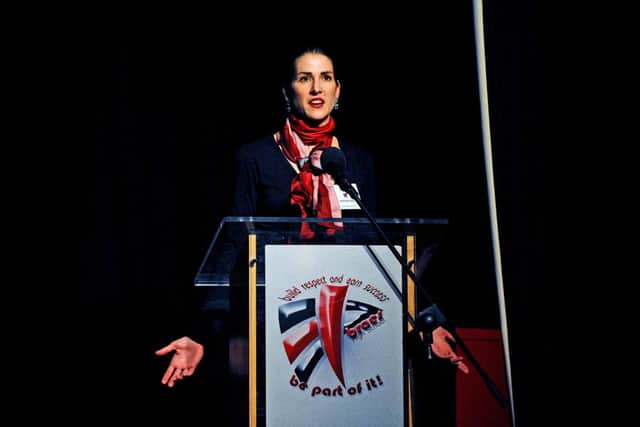Braes High School pupils remember Holocaust and genocide victims


The event was led by students, Emma Mackay and Tabitha Sear (both 17), who visited the Auschwitz-Birkenau concentration camp in Poland last year as part of the Holocaust Educational Trust’s Lessons from Auschwitz project.
This is the third year the memorial service has taken place, organised jointly by head of humanities faculty, Fiona Malcolm, the Rights Respecting Schools and Braes Youth Theatre senior groups to remember the millions of people murdered during the Holocaust and in subsequent genocides in countries like Bosnia.
Advertisement
Hide AdAdvertisement
Hide AdBoth Emma and Tabitha reflected on their trip to Auschwitz and all they had learned there stating it was “almost too much to comprehend”.


Various educational and thought-provoking art displays were set up around the assembly room and pupils also delivered powerful survivor stories through dance and drama.
Guest speaker at this year’s event was Tea Crnica, who lost her father during the Bosnian war which took place between 1992 and 1995, killing 100,000 people.
In July 1995, Bosnian Serb forces killed 8,000 Bosniak men and boys from the town of Srebrenica – the largest massacre in Europe since the Holocaust.
Advertisement
Hide AdAdvertisement
Hide AdMs Crnica shared her personal experience about growing up in a war zone and what her country is like today.


She said: “I was born in ex-Yugoslavia and when I was about six years old something went terribly wrong and all of a sudden people went from being Yugoslavian to something different.
“War broke out and we lived about 100 metres from the line of fire. The sound of firing became quite normal. We had no electricity and spent most of our time in the cellars, it was really dark.
“I don’t really know how our parents coped with us children. I remember for a few years I really really craved a boiled egg and I know I asked my mother every day for one and she had nowhere to buy it.
Advertisement
Hide AdAdvertisement
Hide Ad“My sister, who was three years younger than me was at my grandma’s when war broke out. She lived two to three kilometres away and my family could not get her for a few months. One night they walked during the night to get her and when they brought her back she couldn’t speak for two years because the sound of firing and shelling was so deeply in her mind.”


“In 1993 my father was killed. I was just under seven years old and was very close to him so I felt this huge hatred. I continued to feel anger until I was 18 years old, but, luckily, my mother managed to teach me not to hate anybody.
“She explained to me that whatever is happening on one side is also happening on other side so people shooting at us were also being shot at.”
Tea explained that she came to the UK in 2003 after winning a scholarship for a boarding school in York and now lives in Scotland.
Advertisement
Hide AdAdvertisement
Hide AdToday, the town that Tea grew up in, Gornji Vakuf remains divided.
“It still has a division line that some people cross and some don’t,” she said.
“The political situation unfortunately determines how people see each other.
“I think people who remain in Bosnia are probably the ones who have these strong opinions about not mixing and not reconciling.
Advertisement
Hide AdAdvertisement
Hide Ad“To me love comes naturally. I used to feel hatred but I was very lucky to have a good role model in my mother to help me forgive.
“To this day when I hear there are wars around the globe, for example in Yemen and Syria, I can’t believe we are still letting all this go on and humankind does not learn.
“I do hope that in future humankind will learn from all these bad experiences and will not let any more genocide happen again.”
Braes High School head teacher Iain Livingstone said: “I would like to thank Tea for sharing her personal experience and also thank all the other speakers and performers.
“This memorial service ties in with our Rights Respecting Schools status and delivers a strong message about the values of our school and about the importance of tolerance.”